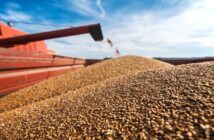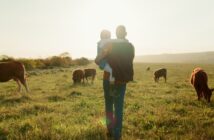The agriculture industry has committed to reaching Net-Zero carbon emissions by 2040 and for arable farmers, this will require substantial reductions in the greenhouse gas intensities of crop products, as well as increased storage of carbon in the farm system. Crucially, for a Net-Zero approach to be successfully adopted by as many possible, growers first need to come together to understand the issues, adopt common metrics and share ideas and experiences to find ‘what works’.
Recent success with Innovate UK funding has enabled ADAS to develop the functionalities needed to initiate a new network focussing on reducing the carbon costs of cropping, called YEN Zero.
With support from The Morley Agricultural Foundation (TMAF), ADAS has been able to calculate the GHG intensities of cereal crops that have been entered into the Yield Enhancement Network since 2013. Results have demonstrated a wide variation in crop GHG costs on-farm and highlighted the importance of emissions related to N fertiliser. It also showed that high yielding crops often have the lowest GHG intensities.
YEN members already have the ability to compare their crops to their peers, selecting by location or soil type or other factors. For YEN Zero, we will develop this to enable the benchmarking of crop GHG intensities and bring together organisations and individuals who are all interested in calculating, comparing, understanding and improving their carbon footprints.
Learn more about YEN Zero
Go to our YEN Zero webpage to find out more and sign up if you’d like to be part of the journey. https://www.yen.adas.co.uk/index.php/projects/yen-zero
Daniel Kindred will be discussing the issues around YEN-Zero in the first Agritech Express webinar hosted by Agri-techE at 10.30 on Friday 15th January. This will include exploration of the relationships between GHG emissions, crop inputs and crop yields from the TMAF study. You can register for the webinar here – https://www.agri-tech-e.co.uk/event/agri-tech-express-with-adas-yen-benchmarking-and-analytics/




